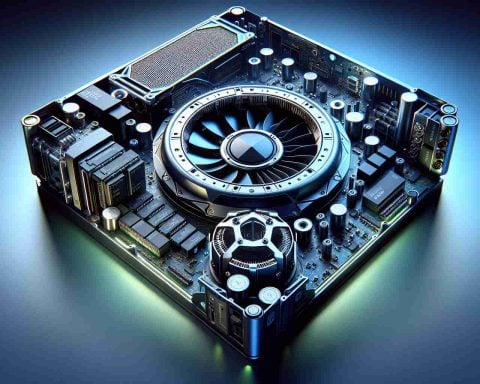Significant Investment to Power the Future of Battery Recycling
Altilium, a British clean technology firm, has announced a groundbreaking investment of $5 million from the renowned Japanese trading powerhouse, Marubeni Corporation. This funding is pivotal as Altilium embarks on its ambitious project to establish the largest electric vehicle (EV) battery recycling facility in the UK, located in Teesside.
The injection of funds will facilitate critical aspects of development, including engineering assessments, land acquisition, and regulatory approvals, alongside the recruitment of a leadership team. Once operational, this innovative facility is expected to process battery waste from approximately 150,000 electric vehicles annually, yielding around 30,000 metric tons of eco-friendly cathode active materials.
Altilium prides itself on creating a comprehensive circular economy for batteries, offering zero-carbon collection, black mass recycling, and chemical refinement to recover valuable metals. Their proprietary EcoCathode™ technology can reclaim over 95% of battery metals, substantially decreasing greenhouse gas emissions by as much as 74% in comparison to traditional materials.
The alliance with Marubeni, which began with a Memorandum of Understanding in 2023, signifies a decisive step towards a sustainable future. Together, these companies aim to revolutionize the UK’s battery recycling landscape, fostering a closed-loop supply chain and reducing reliance on imported materials while minimizing the environmental impact of battery production.
Revolutionizing Battery Recycling: Altilium’s Investment and Future Plans
Introduction
As the electric vehicle (EV) market continues to grow, the demand for sustainable battery recycling solutions has never been more critical. Altilium, a pioneering British clean technology firm, is leading the charge with a significant $5 million investment from Marubeni Corporation. This funding will support the establishment of the largest EV battery recycling facility in the UK, located in Teesside.
Key Features of the Facility
1. Innovative Recycling Technology: Altilium utilizes its proprietary EcoCathode™ technology, capable of reclaiming over 95% of battery metals such as lithium, cobalt, and nickel. This approach not only enhances efficiency but also positions the firm as a leader in environmentally friendly battery recycling.
2. Capacity and Impact: The new facility will process battery waste from approximately 150,000 electric vehicles per year, resulting in an estimated output of 30,000 metric tons of eco-friendly cathode active materials. This capacity will significantly contribute to the circular economy, ensuring that valuable materials are reused rather than discarded.
3. Environmental Benefits: Altilium’s recycling process is projected to reduce greenhouse gas emissions by up to 74% compared to traditional methods. By developing a closed-loop supply chain, the facility aims to diminish the reliance on imported battery materials, thereby minimizing the overall environmental impact associated with battery production.
Use Cases and Applications
The establishment of Altilium’s facility will serve various stakeholders within the EV industry, including:
– Automakers: Providing a sustainable source of recycled materials to meet production demands.
– Recycling Programs: Partnering with local municipalities and organizations to enhance community sustainability efforts.
– Industry Research: Collaborating with academic institutions to innovate new recycling methods and improve existing technologies.
Pros and Cons
# Pros:
– Environmental Sustainability: Reduces waste and lowers carbon footprint.
– Resource Recovery: Efficiently retrieves valuable metals, decreasing the need for mining.
– Economic Growth: Creates jobs in the Teesside region and stimulates local economies.
# Cons:
– High Initial Investment: Significant capital is needed for the infrastructure and technology development.
– Regulatory Hurdles: Navigating the complex landscape of environmental and safety regulations may delay progress.
– Market Fluctuations: The recycling market’s success is subject to demand for raw materials, which can be unpredictable.
Pricing and Market Analysis
The investment signifies a growing trend towards integrating recycling into the battery supply chain amid increasing global awareness of sustainability. Altilium’s initiative aligns with the EU and UK’s regulatory moves to increase recycling rates and lower carbon emissions by 2030. Analysts predict that the battery recycling market could surpass $18 billion by 2025, driven by rising EV adoption and corresponding waste management needs.
Conclusion
Altilium’s collaboration with Marubeni Corporation represents a pivotal moment in the evolution of battery recycling in the UK. By leveraging innovative technology and creating a robust recycling infrastructure, Altilium is poised to set new standards in sustainable practices within the EV industry.
For more information on Altilium’s efforts and updates in clean technology, visit Altilium.













